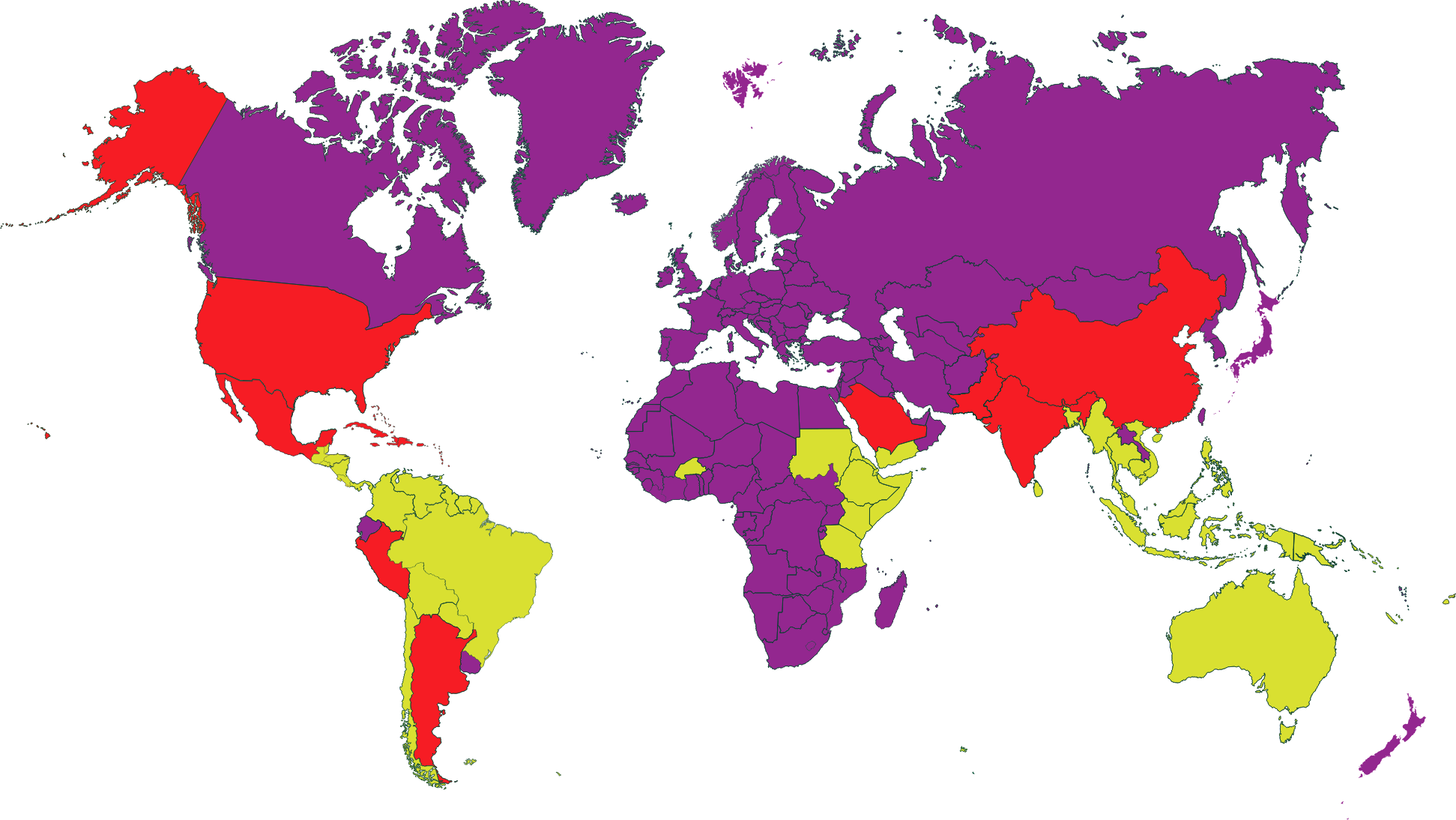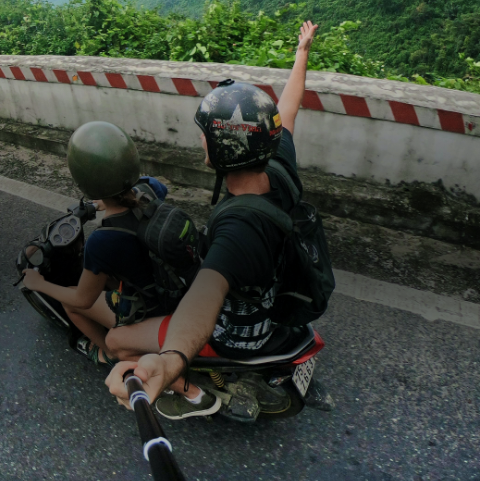
Explore Uninterrupted
Explore Uninterrupted
DON’T LET DENGUE DISRUPT
YOUR TRAVEL PLANS
Is dengue at your travel destination?
Dengue, also known as dengue fever, is the fastest spreading mosquito-borne virus you've probably never heard of, and it could be at your travel destination.1
Talk to your GP, pharmacist or local travel clinic for travel health advice as soon as you've booked your trip.
countries worldwide have dengue2
UK and Irish travellers visit certain dengue endemic regions every year3
UK holidaymakers had their trips ruined by dengue in 20194

What is dengue?
Dengue is the fastest-spreading mosquito-borne virus in the world1 and second only to Malaria as a diagnosed cause of fever among travellers returning to Europe.12
Dengue is passed to people through mosquito bites. The majority of people may have no symptoms, for some it may cause a mild infection with a high fever or flu-like symptoms, lasting around seven days. But in rare cases, it could develop into severe dengue, which requires hospitalisation.5 Pregnant women and people with underlying medical conditions, such as diabetes, asthma or heart disease, are at greater risk of developing severe dengue.6,7
Anybody could be impacted by dengue and there’s no specific treatment, so if you contract this disease while you’re away it could disrupt, or worse, ruin your holiday.
Where in the world is dengue?
Whether you’ll be hanging out in a hot tub or trekking through the jungle, whatever your itinerary, if you’re holidaying where dengue exists, you might be at risk.
Search by country to find out if dengue exists at your destination.

The information presented is based on the latest data provided by the Centers for Disease Control and Prevention dated January 20th, 2023. Data is not available for every country.
Protect your health and your holiday
The type of mosquito that carries dengue bites indoors and outdoors and lives near to people.10,11 You can limit your chances of contracting dengue by taking some simple steps to avoid mosquito bites.

Take insect repellent
Use insect repellent on your skin (ideally one that contains the ingredient DEET)⁵.
Clothes for covering up
Mosquitoes can bite through tight clothing⁸ so wear loose-fitting clothes that cover up your skin, particularly early in the morning and before dusk when mosquitoes may be more active.⁵
Keep water containers empty
Mosquitoes lay their eggs in water, so be vigilant when it comes to anything that holds standing water. Keep any water containers in and around your accommodation clean and empty, and keep bottles of drinking water tightly closed to reduce the chance of egg laying.10
A mosquito net for night-time protection
A net will help prevent mosquito bites while you sleep. It’s even more effective when treated with insecticide. Check there are no holes in the net and tuck it under your mattress before you go to sleep. It’s best to keep it folded away in the day to stop insects getting in.8

Talk to your travel health clinician about dengue
Talk to your GP, pharmacist or local travel clinic for travel health advice as soon as you've booked your trip.
Gabby & Ethan’s Top Travel Tips
Regular travellers, Gabby & Ethan, share their four top tips on how best to avoid mosquito bites when travelling to dengue endemic regions.

Dress to repel
When it comes to your wardrobe, loose fitting clothing is a must in countries with dengue, but a top tip is to makes sure you dress in light or neutral colours, as darker colours can actually attract mosquitoes. Sprays like perfume, hairspray and aftershave can also attract mosquitoes so try to give these a miss if you can.
Prep your mosquito net
We always make sure we take a mosquito net when we travel but the key thing is to make sure it’s big enough. To be properly effective the net needs to fall over the bed and touch the floor or be big enough to tuck under the mattress – you can test this at home before you go! Spray it with insect repellent once you arrive and regularly check it for any holes.13
Try different types of insect repellent
Insect repellent comes in lots of different sizes and consistencies, like roll on, spray and aerosol, so you can choose what’s best for you. We use a spray for our items and a roll on/aerosol for our body and clothes. Make sure you apply insect repellent over the top of sunscreen.14
Keep everything closed and cool
When you get to where you’re staying, always try and keep the windows and doors closed, or use the mosquito screen if available. It’s always tempting in a hot country to keep them open but utilise the air conditioning if you have it, as this will keep the temperature down and deter mosquitoes while keeping you cool. For added protection, we often spray any screens covering the doors or windows with insect repellent too!
Debunking dengue
Can you sort the facts from the fiction? Test your knowledge and find out more about dengue.

Mosquitoes carrying dengue only bite at night
Mosquitoes carrying dengue only bite at night
The type of mosquitoes that spread dengue bite at all times of the day and night, although they can be more active early in the morning and before dusk.⁵ It's a good idea to be ready for mosquitoes at any time of the day by using insect repellent, wearing loose clothing and sleeping inside a mosquito net.

There are multiple types of dengue
There are multiple types of dengue
In fact, there are four. This means it's possible to be infected more than once, which can increase the risk of developing severe dengue.⁹

Dengue fever can be spread from person to person
Dengue fever can be spread from person to person
Dengue is a mosquito-borne virus which means it's spread to people from the bite of an infected mosquito. It's the stripy mosquito Aedes that spreads the dengue virus.² You can't usually contract dengue from someone who is infected, however an infected person can pass it on to other mosquitoes which may then go on to bite and infect other people.²

If I’m bitten by a mosquito that’s carrying dengue, I’ll know
If I’m bitten by a mosquito that’s carrying dengue, I’ll know
Symptoms take five to eight days to develop and usually pass after about a week.⁵ Dengue symptoms can include: a high temperature, a severe headache, pain behind the eyes, muscle and joint pain, feeling or being sick, a widespread red rash, tummy pain or loss of appetite.⁵ In rare cases, severe dengue can be life-threatening and requires hospitalisation.⁵

Mosquitoes can’t bite through clothing
Mosquitoes can’t bite through clothing
One of the simplest things you can do to avoid mosquito bites, is to cover up your skin. But tight-fitting clothing, such as yoga leggings and rash vests, won't help because mosquitoes can bite through the fabric and get to your skin.⁸ Always wear loose-fitting clothing which makes it more difficult for mosquitoes to make contact with your skin.
For more information on mild and severe dengue symptoms and what to do if you contract it while away

Wish you were here..?
Read these real-life stories from travellers who contracted dengue while on holiday.
These stories are not representative of all patients who contract dengue and the majority of cases are asymptomatic.
REFERENCES:
1. Colón-González F et al. ‘Projecting the risk of mosquito-borne diseases in a warmer and more populated world: a multi-model, multi-scenario intercomparison modelling study’ Lancet Planet Health 2021, accessed March 2023
2. WHO, Dengue and severe dengue, 2022, accessed March 2023.
3. World Tourism Organisation (2020), Yearbook of Tourism Statistics, Data 2014 – 2018, 2020 Edition, UNWTO
4. ECDC, Dengue – annual epidemiological surveillance report for 2019, April 2021, Accessed March 2023
5. NHS. Conditions. Dengue. January 2023. Accessed March 2023
6. Badawi A, et al. Prevalence of chronic comorbidities in dengue fever and West Nile virus: A systematic review and meta-analysis. PLos One. 2018;13(7):e0200200.
7. Martin BM, et al. Clinical outcomes of dengue virus infection in pregnant and non-pregnant women of reproductive age: a retrospective cohort study from 2016 to 2019 in Parani, Brazil. BMC Infect Dis 2022;22(1)5.
8. Fit For Travel, NHS, Mosquito bite avoidance, Accessed March 2023
9. Nature.com, Scitable, ‘Host response to the dengue virus’, Accessed March 2023
10. ECDC, Factsheet about dengue, March 2021. Accessed March 2023
11. Nature.com, Scitable, Dengue transmission, Accessed March 2023
12. Camprubí-Ferrer D et al. Causes of fever in returning travelers: a European multicenter prospective cohort study, January 2022, Journal of Travel Medicine, Volume 29. Retrieved March 2023
13. Allianz Assistance. Dengue Fever. Available from: https://www.allianz-assistance.com.sg/blog/dengue-fever.html. Accessed March 2023.
14. Travel Health UK. Preventing Insect Bites. 2013. Available from: https://www.travelhealth.co.uk/advice/preventing-insect-bites/. Accessed March 2023.
C-ANPROM/GB/DENV/0087
May 2023
Information placed on this digital platform is not intended as a substitute for consultation with your healthcare professional. Please consult your healthcare professional for further information.


